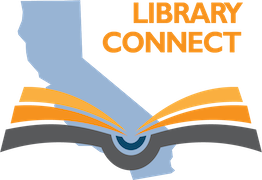FAQs
Have a question? You might find the answer you’re looking for in this page!
General FAQs
The administrator of CLC is the Imperial County Office of Education (ICOE).
All public libraries in the State of California are eligible.
Public libraries in California are members of CENIC (the organization that builds and maintains the CalREN network), and your library patrons and staff will have access to the CalREN network.
CENIC is not a vendor. Rather CENIC operates a private network (CalREN) designed to meet the needs of the education and library community. CENIC seeks input from its members on all aspects of its operations, including operation of the CalREN network.
There are a myriad of benefits to a library that joins CLC. CENIC helps public institutions achieve their goals by providing advanced networking and consulting services and delivering the highest quality technologies at the lowest cost. The CalREN network was built to provide solutions tailored to the needs of public research and education institutions across California and, now, libraries. As a non-profit network owned and governed by its members in the education, library, and research communities, the members have a direct role in shaping CENIC services, products, and strategic direction, to create a high level of value, transparency, and engagement.
CENIC provides the most advanced technologies at the lowest cost by passing along the pricing advantages of its large economies of scale and ownership of its backbone network infrastructure. With a presence in all 58 counties, there is no other network like it in California. By keeping network-related costs low and predictable, CENIC helps organizations meet challenging budget restrictions, reduce program expenses, and do more for their communities. CENIC does not limit members to a one-size-fits-all solution.
A tiered network approach and tailored solutions meet a diverse range of needs. Members are always able to choose the right level of services with cost-efficient scalability as their needs evolve. By connecting to CalREN, a unified statewide library network can be developed and will allow applications to interoperate in ways that would be difficult if libraries were connected to disparate network providers.
These applications might include shared licensing (for both content and business applications), broad-based content sharing, cloud computing applications, and system or multi-system library cards. Additionally, CENIC is managing a statewide E-rate consortium process and accessing the California Teleconnect Fund program for the broadband services provided through this project.
